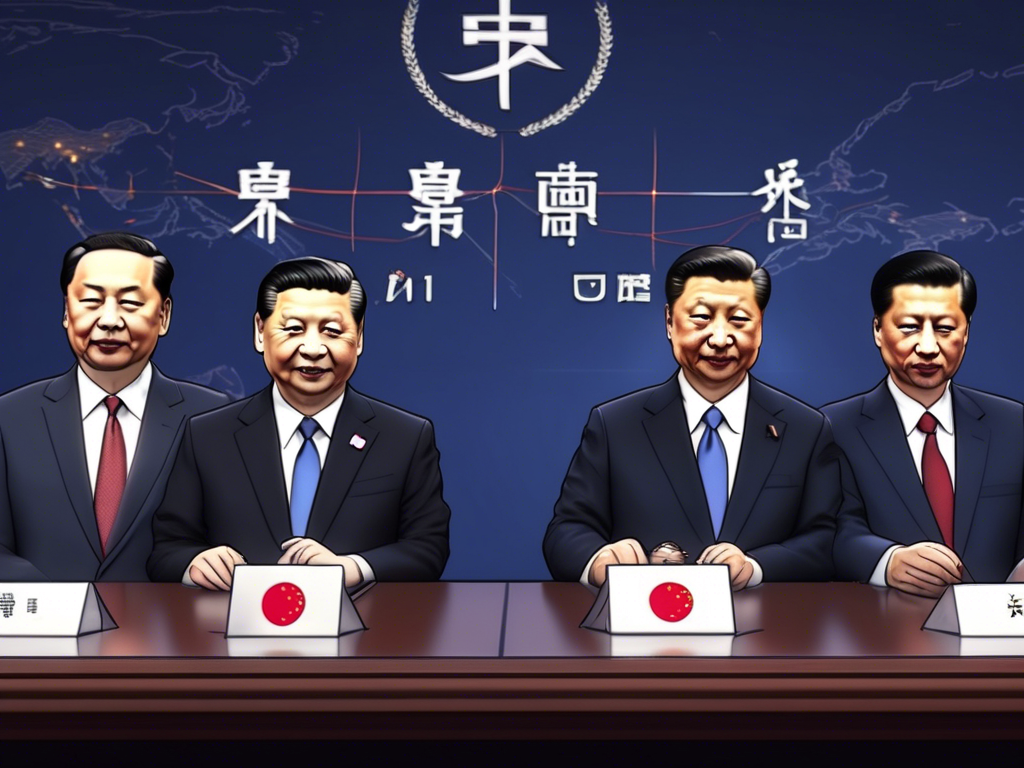China, South Korea, Japan Trilateral Meeting, Xi’s China EV Dream
China has reached out to South Korea to request stable supply chains and a reliable partnership. Chinese Premier Li told South Korean President Moon that China desires both nations to be trustworthy neighbors who support each other’s prosperity. These statements were made as the countries commenced their first tripartite summit with Japan since 2019. The Chinese Premier emphasized the need to avoid turning economic issues into political ones and expressed Beijing’s openness to South Korean companies, such as Samsung, expanding in China.
Richard McGregor’s Insights on the Trilateral Summit
Richard McGregor, a Senior Fellow for East Asia at the Lowy Institute, shared his perspective on the recent developments in the region. He highlights the issues surrounding China’s engagement with South Korea and Japan, noting the rocky relationships that have required re-engagement from China. McGregor points out that China is eager to strengthen ties with these countries, primarily due to their economic and technological significance.
- China’s Desire for Re-engagement with Neighboring Nations
- China’s focus on re-engaging with South Korea and Japan signifies a shift in priorities.
- The trilateral summit indicates China’s interest in bolstering economic and technological collaborations.
- Challenges Faced by China in the Region
- China’s influence and economic role in South Korea and Japan have faced setbacks in recent years.
- The US pressure on South Korea and Japan to cooperate in sanctions against China adds to the complexity of the situation.
Implications of US Pressure on Allies
McGregor discusses the significant pressure the US is exerting on its allies, particularly Japan and South Korea, to align with its stance against China. While the US applies pressure, Japan and South Korea are also motivated to collaborate with the US. McGregor emphasizes the importance of understanding the extent of this cooperation and the potential implications for all parties involved.
- US Influence on Japan and South Korea
- Japan’s unique positioning in pressuring Europe to align with the US against China’s interests.
- South Korea’s historical tensions with China affecting current economic and political dynamics in the region.
- China’s Growing Influence and Response
- China’s evolving strategies to maintain influence in the face of regional challenges.
- The delicate balance of power dynamics and economic interests in the Asia Pacific region.
International Trade Barriers and Geopolitical Risks
The conversation touches on the evolving landscape of international trade barriers and geopolitical risks, particularly concerning Taiwan’s semiconductor industry. McGregor delves into the intricate relationships between key players like Taiwan, China, and the US, highlighting the delicate balance of power and potential implications for global supply chains.
- Impact on Semiconductor Industry
- The significance of Taiwan’s semiconductor manufacturing capabilities on global supply chains.
- Potential challenges and risks associated with geopolitical tensions impacting industry operations.
- Geopolitical Dynamics in the Asia Pacific
- The complexity of managing strategic interests and alliances in a volatile geopolitical environment.
- The need for diplomatic finesse and strategic decision-making to navigate regional challenges effectively.
China’s Success in the Electric Vehicle Industry
Reflecting on President Xi Jinping’s vision a decade ago to position China as a leading player in the electric vehicle industry, the discussion shifts to the remarkable progress China has made in becoming the world’s largest market for EVs. Linda Leu, Bloomberg’s China cars reporter, sheds light on China’s achievements and challenges in this sector, highlighting the country’s dominance and its aspirations for international expansion.
- Transformation of the Chinese Auto Industry
- The evolution of China’s auto industry into a global powerhouse in the electric vehicle segment.
- The shift towards localization and innovation driving China’s success in the EV market.
- Challenges in Global Expansion
- The impact of international trade barriers and geopolitical tensions on China’s ambitions for global expansion.
- The need for strategic positioning and brand building to overcome market challenges and expand abroad successfully.
Investment Strategies for Emerging Markets and Europe
David Chow, Global Market Strategist for the Asia Pacific at Invesco, shares his investment insights on emerging markets and European equities. With a focus on growth opportunities in these regions, Chow emphasizes the potential for profitable investments in AI-related technologies, private credit, and non-investment grade debt. He discusses the importance of understanding market dynamics and geopolitical risks in making strategic investment decisions.
- Growth Opportunities in Emerging Markets
- The potential for high returns and diversification in emerging market equities and AI-related industries.
- The appeal of European equities and their undervalued status compared to other regions.
- Risks and Rewards in Private Credit and High-Yield Debt
- The benefits of exploring private credit investments for attractive yields and portfolio diversification.
- The balancing act between risk and return in non-investment grade debt instruments amidst changing market conditions.
Addressing Geopolitical Uncertainties and Economic Challenges
As the conversation delves into the complexities of global geopolitics and economic uncertainties, the focus shifts to the implications of US-China trade tensions and potential conflicts in regions like Europe and the Middle East. With a nuanced perspective on investment opportunities and risk management strategies, David Chow provides valuable insights for navigating the evolving landscape of international markets.
- Geopolitical Risks and Market Volatility
- The impact of geopolitical tensions on investment decisions and market stability.
- The need for adaptive strategies to mitigate risks and capitalize on emerging opportunities in a dynamic global economy.
- Strategic Asset Allocation and Portfolio Management
- The importance of diversification and resilience in managing investment portfolios amid changing market conditions and geopolitical uncertainties.
- The role of strategic asset allocation and risk management in optimizing returns and minimizing volatility in the face of complex geopolitical challenges.
Recommendations for a Balanced Investment Approach
David Chow offers insights into the evolving investment landscape, advocating for a balanced approach that combines strategic asset allocation, diversification, and risk management. By exploring growth opportunities in emerging markets, European equities, and alternative investment instruments like private credit, investors can navigate geopolitical uncertainties and economic challenges effectively.
- Strategic Asset Allocation Strategies
- The significance of diversification and asset allocation in building resilient investment portfolios.
- The value of exploring diverse investment opportunities to capitalize on emerging trends and global market dynamics.
- Risk Management and Portfolio Optimization
- The role of risk management in safeguarding investments and minimizing potential losses in volatile market conditions.
- The importance of strategic portfolio optimization to maximize returns and achieve long-term financial goals amidst geopolitical uncertainties.
Hot Take: Navigating Market Volatility and Geopolitical Risks
As global markets grapple with geopolitical tensions and economic uncertainties, investors must adopt a proactive and strategic approach to asset allocation and risk management. By leveraging emerging opportunities in AI-related industries, private credit, and high-yield debt, investors can diversify their portfolios and capitalize on market trends effectively. With a nuanced understanding of geopolitical risks and market dynamics, investors can navigate market volatility and geopolitical challenges with confidence and resilience.





 By
By

 By
By

 By
By
 By
By